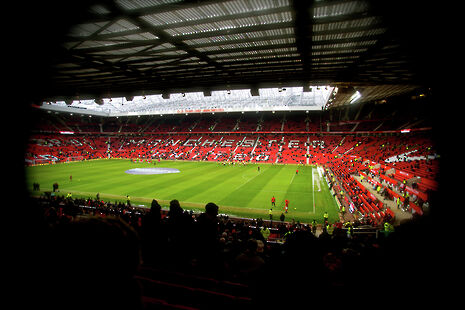There is no argument for fans footing the bill
At least the government might try and promote its case for austerity with economic reasoning. For the Premier League, there is no justification for the consistent hiking-up of ticket prices, argues Nick Jones.

Priorities in modern media are a funny thing. This weekend, supporters from all 20 Premier League clubs protested against high ticket prices in English football. Unfortunately, the woes of Brendan Rodgers and Jose Mourinho eclipsed the weekend’s real news: that England is now officially the most expensive country in the world to watch live football. Despite this, the event, organised by the Football Supporters’ Federation (FSF), seems set to go down as just another fruitless attempt to keep the game affordable for the people who have filled the seats for over 100 years.
The bitter reality is that since the conception of the Premier League in 1992, the sport that once belonged to the working-class has transformed nigh-on unrecognisably. It is no longer affordable for people to attend a handful of games a season, never mind fork out for a season ticket, which at Arsenal, for instance, costs at least £1,000, roughly 10 times more than at German champions Bayern Munich. This problem is a by-product of the league’s global success, and while high-attendances remain impervious to price-inflation, tickets look set to remain expensive. Indeed, BBC Sport’s flagship price of football survey showed last season that the average cost of the cheapest match day ticket had risen significantly by 4.4% since 2013, further increasing the gap between the BPL and its European counterparts. In 2014-15, a season ticket at Barcelona watching Lionel Messi and co pick up La Liga, the Copa del Rey and the Champions League could have been bought for less than the cheapest option at ANY club in the entire football league. To put that in perspective, the Catalonia giants were offering season tickets for £103. Torquay United wanted £295.
Given the cuts, poverty and desperate circumstances facing many people in Britain today, it might seem trivial, or even selfish, to demand cheaper access to football. But such a complaint ignores football’s deeper ties. Football is fundamentally entrenched in working-class culture both physically and emotionally. As a matter of irony, many of the the UK’s finest grounds sit incongruously in and among the most poverty-stricken areas of the country, yet today couldn’t be much more removed from their neighbours. For instance, a 2012 study by the Church Urban Fund found that Liverpool is home to 5 of the 10 poorest areas in the country, with Anfield in 3rd. Moreover, 600,000 people were found to be living in “extreme poverty” in Greater Manchester in 2013, another traditional bastion of the English game that plays host to the National Football Museum. As the Premier League and its clubs rake in millions, such juxtapositions are grotesque.
And this is precisely the point. The recent deal struck between Sky, BT and the Premier League is worth an eye-watering £5.136bn for three seasons and the rights to show just 168 matches live from 2016-17. As this money filters down to the clubs themselves, revenues will be higher than ever, and there will simply be no need to demand outrageous ticket prices from fans. In the cold light of global capitalism and the commercialisation of an erstwhile humble and populist sport, ordinary people have once more been neglected. Although government austerity is iniquitous, the Tories can at least put forward a case for its necessity: the country is in debt, it must cut back on its budget and taxpayers must foot the bill to solve the crisis. Where is such an explanation amongst the upper-echelons of English football? The Premier League is making untold riches, it brings in billions of pounds from major TV companies, and yet fans must continue to line the pockets of those at the top. The inveterate greed of corporations and CEOs plays itself out in many ways. Unfortunately for football-lovers in England, the Beautiful Game is one.
 Interviews / ‘People just walk away’: the sense of exclusion felt by foundation year students19 April 2024
Interviews / ‘People just walk away’: the sense of exclusion felt by foundation year students19 April 2024 News / Copycat don caught again19 April 2024
News / Copycat don caught again19 April 2024 News / John’s spent over 17 times more on chapel choir than axed St John’s Voices22 April 2024
News / John’s spent over 17 times more on chapel choir than axed St John’s Voices22 April 2024 News / Climate activists smash windows of Cambridge Energy Institute22 April 2024
News / Climate activists smash windows of Cambridge Energy Institute22 April 2024 Theatre / The closest Cambridge comes to a Drama degree 19 April 2024
Theatre / The closest Cambridge comes to a Drama degree 19 April 2024





